Was NYC millionaire’s murder a family affair?
Produced by Lisa Freed and Murray Weiss
It was March 1996 when Howard Pilmar’s body was found in his office in a pool of blood. He had been stabbed repeatedly and investigators say he was even stabbed after he was dead.
“He was stabbed over 40 times,” Howard’s stepmother, Carol Pilmar, tells “48 Hours” correspondent Richard Schlesinger. “It had to be somebody he knew, that hated him so much.”
Who would want him dead so badly – and why? NYPD detectives couldn’t find someone with the kind of hatred that would lead to murder – until they discovered surprises about Howard’s wife, Roslyn, and her brother, Evan Wald.
Police learned Roslyn was in trouble with a former employer. “She had embezzled – a large sum of money,” says former NYPD Detective Commander Roger Parrino. And when detectives interviewed Wald, he had cuts on his left hand that he said he got them when he was working at Howard’s coffee business.
“Did they look suspicious to you, given that this was a stabbing?” Schlesinger asks Parrino. “So, the cuts don’t look suspicious. The individual starts lookin’ suspicious,” he replies.
It was beginning to look like Howard’s murder could be a family affair, but prosecutors didn’t believe there was enough evidence to charge anyone with the murder.
“Years went by,” says Carol Pilmar. “They never found the weapon. And they never had a witness.”
The case then went cold until NYPD cold case investigators and Manhattan prosecutors spent four years reviewing the evidence and finding new witnesses – including the family’s former nanny who, two decades later, finally revealed what she knew about the night of the murder.
MARCH 22, 1996
Ron Tucker: It was Friday, March 22nd. … I was in the greatest mood, blue sky, bright sunshine … It was the first day you feel like spring is coming. … I was feeling great.
But Ron Tucker’s mood, his day and his life were about to change. Because on that beautiful morning in 1996 – when the King Office Supply salesman arrived at work – he learned his boss, Howard Pilmar, had been murdered in the office.
Ron Tucker [in front of the King store]: Within 30 seconds of coming here, they brought the body out right here.
Ron Tucker: I couldn’t, I’m racking my brain, what happened?
Howard Pilmar’s body was found in a large pool of blood in the fourth-floor offices.
Roger Parrino | Former NYPD Detective Commander: It was bloody, because after he’s on the floor for a few hours, he’s draining out.
Roger Parrino was in charge of the Midtown South detectives. Pilmar was stabbed repeatedly in the chest, back and neck. There was no sign of forced entry, nothing was taken from the office or from his wallet.
Roger Parrino: We gotta get down to business. We don’t know what we have here.
Howard had just turned 40; he was married and the father of a young son. He had recently taken over his family’s successful office supply store so his father Frank and stepmother Carol could spend more time in Arizona. That’s where they got the news.
Frank Pilmar: Howard’s dead. Couldn’t believe it.
Ron Tucker: Howard was a swaggering … risk taker. … He was a visionary.
Howard envisioned that people would go crazy for coffee and be willing to spend big for it. So, he opened the first-of-its-kind high-end coffee bar inside a store.
Ron Tucker [standing outside the business]: I’m telling you there were a line of people … Out the door. Right here. A line of people.
He named it “Philip’s” after his young son. It was so successful he opened a second shop around the corner from Carnegie Hall. His wife, Roslyn, gave up her career as a dental hygienist to run the coffee business. And on that March morning, after the murder, Roslyn joined the employees gathered inside King Office Supply … putting on a brave face.
Ron Tucker: She was totally calm, composed, collected … No tears, no anger, no nothing. … I thought to myself, “what a trooper.”
She assured everyone, the business would endure.
Ron Tucker: “Don’t worry. … we’re going to carry on. We’re gonna keep the business.”
Janna Wald: It’s almost like it wasn’t real. Her husband was dead. Her best friend.
Roslyn’s sister Janna says Howard and Roslyn were high school sweethearts.
Janna Wald: They had a great love.
They married in 1982. Howard’s sister, Rhonda, was there.
Rhonda Pilmar Cooper: it was a beautiful wedding. It was a big beautiful wedding.
So was his stepsister Heather. Frank adopted Heather when he married her mother Carol.
Heather Pilmar: Roz was like a sister to me … she was probably one of my closest friends.
Roslyn and Howard were living the life. An apartment on New York’s swanky Upper East Side, a home in the country, and, in 1986, their son Philip was born.
Rhonda Pilmar Cooper: It was the perfect family. … as passionate Howard was about business, that’s how he was about his son.
Now, Howard’s life was over.
Rhonda Pilmar Cooper: It’s as if someone punches you in the stomach as hard as they could and knocks the wind out of you. … I couldn’t take a deep breath.
Heather Pilmar: I have my life before Howard was killed and my life after Howard was killed. … They didn’t really understand the ramifications of it … How it would change my father … How it would change the dynamic of my family.
The police now needed to learn all about Howard’s family and his friends and his business.
Roger Parrino: Who’s the last one to see him? Who’s the last one to talk to him? Who’s related to him? Who’s worked with him? Who shoulda been here? Who was here? Who first sees him? Who’s coming next?
Richard Schlesinger: Who were the last people to see Howard Pilmar?
Roger Parrino: it was his wife and his brother-in-law.
Parrino went to the Pilmar’s apartment to talk to Roslyn.
Roger Parrino: She seemed cooperative, helpful.
Richard Schlesinger: What’d you talk to her about?
Roger Parrino: Oh, just normal things. … how was her marriage? … She said that they were happily married.
According to Roslyn, on the night of the murder, she and her brother, Evan Wald – who worked at Philip’s Coffee – met Howard at his office. Roslyn told police that she and Evan left Howard – who planned to keep working and watch a basketball game. But later that night when Howard didn’t come home, Roslyn left this voicemail on his office phone:
ROSLYN PILMAR’S VOICEMAIL: Hi How, it’s, um, like a quarter to 10… Philip and I were wondering if were still at work, working, or if you went off to some sports bar like you said you wanted to, to go watch the NCAAs … I’m sure you’ll call me from where you are, and, um, talk to you later. Bye, love ya.”
Howard never called back, but Roslyn made a lot of calls asking about him – including in the early morning hours – to several hospitals.
Police had a lot to sift through.
Roger Parrino: In interviewing all those people and talking to all those people … you just take the facts … where they, where they lead you.
Parrino’s detectives heard stories about disgruntled employees. Could one of them be the killer? There were rumors that Howard was a womanizer. Could it be a jealous husband?
Roger Parrino: Lots of people have motives. You gotta have more than just a motive. There’s gotta be a reason. … and then you have to have access.
And whoever did it would also have to have a lot of anger. Howard had been stabbed 48 times. It was, in a word, overkill.
Roger Parrino: A good percentage of the stab wounds on the back were all postmortem.
Richard Schlesinger: After he was dead?
Roger Parrino: Yeah, after he was dead. … This is, I want to make sure you’re dead, absolutely dead, completely and utterly dead.
There were some leads that looked promising early on. When detectives interviewed Roslyn’s brother, Evan, they noticed something.
Roger Parrino: He had an injury on his hand.
He had cuts on his left hand. He said he got them when he was working at Philip’s Coffee.
Richard Schlesinger: Did they look suspicious to you, given that this was a stabbing?
Roger Parrino: So, the cuts don’t look suspicious. The individual starts lookin’ suspicious.
They thought it could be suspicious when they learned Evan and Howard did not get along – and there was more.
Roger Parrino: We found out that Evan was asking questions about what he thought was a camera, asking questions about the alarm system.
And there were also one or two surprises about Roslyn.
Roger Parrino: We find out that Roz and Howard marriage is not successful and she was giving us a different image.
It was beginning to look like Howard’s murder could be a family affair.
Janna Wald: It was mind blowing. It was like, “no way.”
QUESTIONABLE BEHAVIOR?
Frank Pilmar: I’m telling you, on the way to the cemetery I knew that something was wrong.
Frank Pilmar knew, now that Howard was dead, that Roslyn could make out really well.
She’s the one who would get more than a million dollars in life insurance, the family’s real estate, and King Office Supply – the company that Frank Pilmar had built and passed on to his son.
Frank Pilmar: Here I gave up the business. She’s got it. … I just couldn’t even look at her.
And Roslyn appeared to be moving quickly. Less than two weeks after Howard was killed, she went to King Office Supply and despite what she had said just 10 days earlier, she announced she was selling the company.
Ron Tucker: I was shocked at that.
Ron Tucker says when she should have been grieving over all she’d lost, Roslyn had been negotiating over how much she’d get for the business.
Ron Tucker: It’s inconceivable that you would do that instead of mourn. And right then and there, I started to … question her motives.
Police also had questions about Roslyn, and they were starting to see why she might have needed money – and fast.
Roger Parrino: I think when we find out about the financial issues … she’s not quite what we originally thought we were looking at here.
For 16 years Roslyn worked for a dentist, Dr. Stanley Weinstock. She was his dental assistant and also his bookkeeper. The police found out she embezzled money from her boss – and a lot of it: hundreds of thousands of dollars.
Neal Klein: It was like a family member … stealing from you.
Nobody noticed until after she left to manage Philip’s Coffee. That’s when the dentist and his accountant, Neal Klein, discovered Roslyn had deposited 186 patients’ checks into her own bank account.
Richard Schlesinger: How long had she been doing this?
Neal Klein: About three or four years.
Klein confronted her in late 1995, just a few months before Howard’s murder.
Neal Klein: She just said, “Yes, I took the money.” … and she said, “Don’t tell my husband.”
Richard Schlesinger: She said that?
Neal Klein: Yes … “He’ll throw me out and I’ll never see my son again.”
Richard Schlesinger: What did you make of that?
Neal Klein: That was pretty shocking.
Klein agreed to keep her secret and Roslyn agreed to repay the money.
Neal Klein: Weeks go by and I called her several times. And, “It’s happening, it’s happening, it’s happening.” But, of course, it didn’t happen.
And Roslyn owed even more money. She was supposed to pay the taxes for the coffee shop, but she didn’t. And she owed New York State almost $15,000. The state was threatening to seize the business if the taxes weren’t paid.
Carol Pilmar: All this started to add up, give reason for the murder. I mean, she was desperate for money. … She was afraid if he found out, he would divorce her … She didn’t want to lose Philip. … here’s a woman who’s an embezzler. She’s a tax cheater. She’s not fit to be a mother.
Roslyn didn’t talk about her problems. But Heather noticed Roslyn seemed jittery in the weeks before the murder.
Heather Pilmar: She seemed really stressed out. … And I did ask her, you know, “Is everything OK?” ’cause she, like, lost a lot of weight. … she was like, “No, I’m fine. I’m fine.”
Heather didn’t bring it up again, but she did ask Evan about his sister.
Heather Pilmar: He said to me … “If Howard hurts her in any way” – and I was like, “What do you mean?” … “If he hurt her I would kill him.” And I said, “What?”
Richard Schlesinger: He said –
Heather Pilmar: Yes.
Richard Schlesinger: – “If he hurts her, I will kill him”?
Heather Pilmar: Yeah.
Richard Schlesinger: Well, I mean, at that point did you think that Evan was capable of murder?
Heather Pilmar: No.
But the next night, Howard was murdered.
Heather Pilmar: I had immediately thought that Evan did it. I had, like, a pit in my stomach.
Heather had a more difficult time believing Roslyn was involved.
Heather Pilmar: I still couldn’t believe that this person, that I’ve known most of my life, could do something like this.
Even though there was no physical evidence, her father never had a doubt.
Frank Pilmar: Any time I’ve met anyone going back all these years who’ve asked me about who did this, I said, “his wife and her brother.”
Roslyn knew what Frank thought and decided he, Carol and Heather could never speak to her or Philip again. His family was split apart, but right from the start, Frank decided he was not going to let his son’s killers get away with it.
Roger Parrino: He would spend lots of times coming to the precinct or call – even calling my supervisors, telling them we need to [laughs] do a better job.
Richard Schlesinger: So, you would call them, what? Once a week? Once a month?
Frank Pilmar: Maybe once a day, maybe once every other day.
Richard Schlesinger: Did you ever hear from Roslyn? She ever call asking what was going on?
Roger Parrino: No.
Richard Schlesinger: Never?
While Roslyn didn’t seem interested in the police, they stayed interested in her and her family. About a year later, detectives put up posters asking the public for help in solving the case. And the posters kept disappearing.
Roger Parrino: We set up a surveillance van to see what was happenin’ … And then who is it? It’s Evan. Evan tearin’ down the posters.
That woman with him – that’s Janna – Roslyn and Evan’s sister.
Janna Wald: They just kept plastering them all over the doors of the business. I found it extremely harassing.
Roger Parrino: I’m sorry that in an investigation to solve their brother-in-law or husband’s murder that they thought it was harassment to try to get more information.
Richard Schlesinger: You’re not really sorry.
Roger Parrino: No.
About a year after the murder, Roslyn was arrested, but only for embezzling from the dentist. She pleaded guilty and was given probation after paying back the money she stole.
Richard Schlesinger: Where’d she get the money to pay?
Roger Parrino: The insurance policy and the sale of the business, I believe.
Richard Schlesinger: That tell you anything?
Roger Parrino: Yeah, it’s all part of the motive.
Roger Parrino: It’s a circumstantial case, and it’s kinda like a bucket of water, right? So, every drop fills that bucket, and it’s not until that bucket’s full is it ready to go.
And in 1999, it looked like new evidence would start pouring in. DNA technology had advanced and the court ordered Evan Wald to give a sample of his blood. It was a match to a small drop of blood found near Howard’s body.
Roger Parrino: Puts him on the scene, puts him in the place.
It was one crucial piece of physical evidence, but it was not enough for prosecutors and the case went cold.
Richard Schlesinger: Did you despair?
Frank Pilmar: I don’t think I ever despaired. No. … She did.
Carol Pilmar: I didn’t want to get his hopes up and then you know –
Frank Pilmar: She thought I was nuts.
But Frank refused to give up.
Frank Pilmar: I remember feeling that the something good was going to come of this because I was getting too old for it not to happen.
A NEW LOOK AT THE CASE
Over the decades, Roslyn Pilmar and Evan Wald moved on with their lives. Their sister Janna says Roslyn returned to being a hygienist.
Janna Wald: She worked like everybody else does. You work, make a paycheck. You pay your bills. She raised an amazing son.
Philip went to private school, then on to college and law school. He eventually joined a top firm and got married.
Evan got married and continued his career in the food industry.
Richard Schlesinger: There wasn’t a shadow over your brother and sister? They didn’t feel like they had to look over their shoulders?
Janna Wald: Why should you look over your shoulder when you’re innocent?
But what they didn’t know was Manhattan prosecutors Elizabeth Lederer and Melissa Hindman had spent four years reviewing all the evidence and finding new witnesses. On August 15, 2017, Janna Wald received a panicked early morning call from Evan’s wife.
Janna Wald: “Evan just got arrested” and I said, … “for what?” “Howard’s murder.” I was like, “are you kidding me?”
Janna barely hung up the phone when it rang again. And this time it was about Roslyn.
Janna Wald: My sister was arrested … and all I did was break down and cry.
Janna is just as certain today as she was when Howard Pilmar was murdered that her siblings are innocent.
Richard Schlesinger: I think people listening to you may say, “She’s a very good sister. She’s devoted. But she can’t accept what’s staring her in the face.”
Janna Wald: I don’t think that’s correct. … I’m sorry. Even being biased … and I love my family, but they’re just not capable. These are not killers.
Frank and Carol Pilmar, not surprisingly, reacted to the arrest somewhat differently.
Frank Pilmar: We all hugged.
Carol Pilmar: – and cried.
Frank Pilmar: I didn’t really expect her to be arrested as well.
Frank immediately called his daughters in New York.
Rhonda Pilmar Cooper: I remember my heart – I couldn’t control myself, my heart was pounding so. It was unbelievable.
Heather Pilmar: You’ve known for all these years that at some point something’s going to happen … I was kind of shaking inside.
Roslyn and Evan were held without bail.
Heather Pilmar: That was a very big day for us.
But it was a very bad day for the Walds, especially when they visited Roslyn and Evan behind bars.
Janna Wald: I’ve never felt so broken in my life.
Daniel Gotlin: I went through all the evidence and there wasn’t a shred, a scintilla of new evidence against Evan Wald.
Daniel Gotlin is Evan’s attorney.
Daniel Gotlin: Bring me the evidence … you will find there’s nothing, zero.
Now, the defense has to deal with a case that’s more than 20 years old. Roslyn’s lawyer is Sam Talkin.
Sam Talkin: There are witnesses that passed away. We don’t have opportunity to canvass the neighborhood. We don’t have an opportunity to talk individually and conduct our own investigation.
They will have to explain that drop of Evan’s blood at the crime scene. Evan’s family and his lawyer reminded everyone that Evan worked in the food business – in kitchens where people frequently cut themselves and that he sometimes prepared meals at Howard’s office.
Dan Gotlin: There’s no way of telling when that blood was put there.
Of course, there is also the hundreds of thousands of dollars Roslyn embezzled from the dentist. Roslyn’s sister Janna Wald says Roslyn did a bad thing, but for a good reason. Their mother was having difficulty paying the mortgage.
Janna Wald: I guess my sister felt that she wanted to help her.
So why did Roslyn keep it a secret from Howard? Janna says that’s simple: she didn’t.
Janna Wald: Howard knew what Roslyn had done.
Richard Schlesinger: He did know?
Janna Wald: Absolutely. … My sister told me.
Janna Wald: I’m sure Howard was not jumping up and down for joy. But it was something that they could work out.
Roger Parrino: My belief is that he wouldn’t have known, unless he knew moments before he was killed.
Richard Schlesinger: Wow, that’s chilling.
The Wald family believed the police focused solely on Evan and Roslyn and ignored other possible suspects.
Dan Gotlin: There were other people that may have had a motive. … I found multiple people that didn’t like the deceased …. some of them had made threats.
Roger Parrino: In interviewing all those people … there was nothing that came out … so it’s following the evidence … and it’s going nowhere but right back to Roslyn and Evan.
A KEY WITNESS EMERGES
On January 17, almost 23 years after Howard Pilmar’s murder, his wife, Roslyn and brother-in-law Evan, went on trial for killing him.
Carol Pilmar: There was some kind of satisfaction seeing them in handcuffs.
Frank and Carol Pilmar came from Arizona, and for the first time in decades they came face to face with their former daughter-in-law and their grandson, Philip.
Frank Pilmar: I saw him. And he looked exactly like Howard. One face, you knew, that this kid was Howard’s kid. They are one face.
But they never spoke.
Sam Talkin | Roslyn Pilmar’s defense attorney: It’s as divided as that aisle in between. There was our side. And there was their side. And it was that simple.
Both sides sat through graphic evidence about the gruesome killing:
PROSECUTOR ELIZABETH LEDERER [in court]: Roslyn Pilmar and Evan Walt savagely and brutally murdered Howard Pilmar.
PROSECUTOR ELIZABETH LEDERER [in court]: Their plan was deliberate and detailed. It was meticulously carried out.
The evidence was mostly circumstantial. But Evan’s lawyer Dan Gotlin was worried. There was that drop of Evan’s blood at the crime scene. It is the only physical evidence that could tie him to the murder.
DAN GOTLIN | EVAN WALD’S DEFENSE ATTORNEY [in court]: Clearly, it’s Evan’s blood. We don’t dispute that.
Gotlin says there’s no way to know when the blood drop got there, but investigators noticed that injury to Evan’s hand the day after the murder.
PROSECUTOR ELIZABETH LEDERER [in court]: His left hand, because he is left handed, held the knife. … Maybe as Howard bled the knife handle became slippery. We won’t know for sure, but all we do know is that Evan cut himself and bled at the scene where he killed Howard Pilmar.
The knife was never found, and police waited a week to photograph Evan’s hand.
PROSECUTOR ELIZABETH LEDERER [in court]: And if you look at those photographs … It’s not just one cut. It’s a number of cuts.
But the defense insists Evan cut himself while working the day before the murder.
DAN GOTLIN | EVAN WALD’S DEFENSE ATTORNEY [in court]: He said, “I was at an event and at the event a plate dropped. And I cleaned it up and I cut my hand.” … That’s why he was wearing a Band-Aid.
Except the prosecution had Heather’s testimony that she saw Evan the night before the murder, and he seemed fine.
Richard Schlesinger: Did he have any cuts on his hands?
Heather Pilmar: No, he did not. He only had coffee grinds under his fingernails the way I did. … There were no bandages on his hands.
But Gotlin hopes the jury will wonder if this drop of Evan’s blood got there when Howard was murdered, why it wasn’t mixed with Howard’s blood.
Dan Gotlin: If he’s stabbing him and Howard’s bleeding, blood should have gotten all over him.
And Evan’s blood was not found anywhere else.
Dan Gotlin: There was no blood found of him in the bathroom, where he supposedly went to clean up … None of his blood found anywhere near the crime scene. There’s no blood of his found on the stairwell going down into the street. In fact, there’s no blood found in the street.
And what will jurors think about Heather’s account of her conversation with Evan the night before the murder, where she says he told her if Howard hurt Roslyn, he would kill him.
Richard Schlesinger: That’s not a good thing to have to explain, especially when your client shows up with cuts on his hands.
Dan Gotlin: Would I have preferred that there were no cuts on his hand, that there was no blood on the wall, or he hadn’t made any statements? Yes. Because, then, even though I love speaking to you, I wouldn’t be speaking to you because there wouldn’t have been any case.
But the case against Roslyn was all circumstantial. Even though her family says she was happily married to Howard, the prosecution says Howard had met with a divorce lawyer and all the while Roslyn was facing mounting pressure to pay back her crushing debts.
PROSECUTOR ELIZABETH LEDERER [in court]: She had to find money and she had to find it quickly.
She owed all that money she embezzled from the dentist.
Sam Talkin | Roslyn Pilmar’s defense attorney: We had the debt from the dentist. But it wasn’t due.
That’s not what Neal Klein says. The dentist’s accountant remembers leaning on Roslyn for the money in the weeks leading up to Howard’s murder.
Richard Schlesinger: Were you saying to her “we need the money?”
Neal Klein: Yeah.
Richard Schlesinger: “We need it soon.”
Neal Klein: Yeah. … I was putting a little more pressure on her, yes.
Richard Schlesinger: You don’t strike me as a kneecapping kind of guy … So how were you turning up the pressure on her?
Neal Klein: Just said, “Roz, this can’t go on much longer. … If you’re not going to make payment then we’re going to have to go further.”
At the same time New York State was demanding the back taxes for Philip’s Coffee:
PROSECUTOR ELIZABETH LEDERER [in court]: And if she doesn’t pay by certified check on that day, they’ll file a lien. They’ll padlock the store.
The due date – March 21 – the same day Howard was murdered.
Sam Talkin: Needing money does not mean that you’re going to kill your husband. … Killing your husband doesn’t mean it’s going to resolve the need for money.
Evan and Roslyn both decided not to testify. But the jurors heard Roslyn on the message she left on Howard’s voicemail.
ROSLYN PILMAR VOICEMAIL: Hi How, it’s, um, like a quarter to 10 and um, Philip and I were wondering if you were still at work, working …
Sam Talkin: If you listen to it, and I’ve listened to it a thousand times, that is clearly a woman who is looking for her husband and is worried.
But not everyone hears it the same way.
ROSLYN PILMAR VOICEMAIL: Anyway, I got home I guess by like uh 8:10… 8:15 and Roseman called about 8… 8:30 he was still at the office. I told him to try to call you. … Talk to you later. Bye, love ya.
Roger Parrino: I hear a timeline being put down for the police’s benefit.
Richard Schlesinger: Really?
Roger Parrino: Yeah. It’s just too contrived, too drawn out.
And the state has a witness who’s relatively new to the case: Allyson Lewis, who in 1996 was Philip’s nanny. Just out of college, she didn’t want to talk to police back then.
Roger Parrino: I think when you consider the fact that … this was the person who was paying her and employing her, and perhaps as she matured and got older, she realized that she had somethin’ that she could share.
She now says on the night of the murder, she took Philip to ice hockey practice because Roslyn and Evan planned to meet with Howard:
PROSECUTOR ELIZABETH LEDERER [in court]: She said that Roslyn Pilmar was very vague in her instructions to her. That was very different than she usually was.
Allyson says Roslyn later told her to take Philip home after practice, because she was still at Howard’s office:
PROSECUTOR ELIZABETH LEDERER [in court]: She said, “we’re not done here.” …Those words are chilling, ladies and gentlemen. … And you know that she’s at the fourth floor, the King Office Company with Howard Pilmar and her brother.
And when Allyson and Philip finally arrived home, Roslyn met them at the door. She had wet hair. Allyson said it was odd – the apartment was dark. And Roslyn didn’t want her to come in.
Janna Wald: I’m sorry, but I do not believe a single word that came out of her mouth.
Roslyn’s sister Janna says there’s no one to corroborate Allyson Lewis’ testimony.
Janna Wald: I’m still very dismayed by the fact that she was so adamant about not wanting to talk to the police and then 20 years later was so willing to talk.
The trial lasted almost two months and then the jury got the case. And from their first vote, the jurors knew their job would be tough.
Sam Resnicow | Juror: Listen, things got pretty heated at times.
THE LONG WAIT FOR JUSTICE
Sam Talkin: I was feeling very nervous. … if you’re not nervous when the jury goes out, you’re not alive.
Richard Schlesinger: By the second day were you coming together? Were the votes getting closer?
Sam Resnicow: I don’t think so.
Ryan Smith | Juror: No … We had two staunch holdouts.
Sam Talkin: I think in a case like this the longer the better.
By the fourth day of jury deliberations, defense attorney Sam Talkin was starting to feel optimistic.
Sam Talkin: We’re asking them to think and they were thinking. So yes, I think that was a good sign.
That afternoon, the jury came back.
Heather Pilmar: My father was in the courtroom … on the other side Philip was there with Roz’s family.
Cameras were not allowed in the courtroom for the verdict.
Carol Pilmar: We sat down and I’m holding his hand.
Frank Pilmar: I was scared. I was scared.
Carol Pilmar: And I was like crying inside.
Richard Schlesinger: What were you worried about? What were you scared of?
Carol Pilmar: That he’d drop dead.
Richard Schlesinger: Literally.
Carol Pilmar: Yeah. I thought he’d collapse.
Ryan Smith: We’re lining up and it was at that moment that the entire room tensed up.
Ryan Smith, Sam Resnicow and the other jurors prepared themselves to deliver their verdict and headed for the courtroom.
Ryan Smith: We walked in. And it was super quiet, and you could just feel the room vibrating.
Smith was the jury foreman. He announced the verdict.
Ryan Smith: Roz was first.
Richard Schlesinger: And that was what?
Ryan Smith: Guilty.
Richard Schlesinger: And the second was Evan’s verdict. And that was?
Ryan Smith: Guilty.
Both guilty of second-degree murder. After nearly 23 years, it was almost as though the word echoed through the courtroom.
Richard Schlesinger: When you heard the verdict –
Carol Pilmar: Frank didn’t hear it.
Heather Pilmar: My father couldn’t hear a word.
Carol Pilmar: I screamed in his ear.
Heather Pilmar: Guilty!
Carol Pilmar: Guilty!
Heather Pilmar: Guilty!
Carol Pilmar: Guilty!
Frank Pilmar: It was like euphoria. I was so happy. … Both of us were hugging and crying.
When Philip heard his mother had been convicted of killing his father, he ran out of the room.
Janna Wald: We were all shocked by the verdict. … I felt so numb, I can’t even begin to describe the pain, the heartbreak.
Both families had to wait for four months to find out how much time Roslyn and Evan would serve.
In July 2019, family, friends, lawyers and detectives crowded into the courtroom for the sentencing hearing.
Philip Pilmar was there alongside Roslyn and Evan’s sister.
But before Roslyn and Evan hear their sentences, they will have to hear family members tell Judge Gilbert Hong what Howard’s murder had done to them.
CAROL PILMAR [in court]: March 22, 1996 was the worst day of my life. … Sorry, to bury a child – in my case a stepson – our lives have never been the same and never will be. I implore you to give these murderers the maximum sentence.
Carol Pilmar: I want them to suffer.
Richard Schlesinger: You want them to suffer.
Carol Pilmar: Yes.
Frank Pilmar: It’s not that I want them to suffer. They’ve got to pay the price. You just don’t go killing people.
Frank was next.
FRANK PILMAR [in court]: You know, Your Honor, every night when I go to bed, I try to close my eyes before hoping that I will get some sleep. But I can’t get sleep, because I keep thinking about the terror and the fear that went through Howard’s mind in those last seconds that he was slaughtered and butchered by those two.
Then, Frank turned to his grandson.They have not spoken for more than two decades.
FRANK PILMAR [in court]: I’m going to direct this to Philip…
FRANK PILMAR [in court]: That day in March I lost three things, two of which I can never ever get back: my son and my business … But I also lost Philip and I know Philip doesn’t want to look at me. I’m sorry about that. But I just want him to know … we love you and we want you back. Please. That’s it your honor.
Frank Pilmar [outside courtroom]: I was hoping that he would come and reciprocate and hold me around and hug me.
But that never happened.
Philip did not speak to his grandfather, but he did speak to the court. He asked the judge to order “48 Hours” to cut off the audio. These are the words of a son trying valiantly to save his mother from spending the rest of her life in prison:
Philip Pilmar [in court]: Having my mom die in jail will not bring back my dad …
As his uncle and mother wept, Philip credited her for making him the man he is today:
Philip Pilmar [in court]: She raised me to be kind, to be loving, to value education, value hard work. She was there for me every step of the way when I struggled with the death of my dad.
He asked the judge for leniency. But it didn’t work:
JUDGE GILBERT HONG: This was an exceptionally brutal and violent murder … it’s violence and brutality reveal boundless anger and hatred towards Mr. Pilmar. … For this crime, for this murder … I sentence each of you to 25 years to life incarceration.
It’s the maximum sentence. And it’s what Howard’s family, except for Philip, wanted. But still, they are not doing much celebrating.
Heather Pilmar: It’s bittersweet. … There’s justice for Howard and that’s the important thing, but there’s collateral damage. … We all lost something.
Richard Schlesinger: What does justice feel like? You’ve gotten it.
Frank Pilmar: Justice feels like, uh, like happiness. … I just feel that “Frank you worked at it. … All your work paid off.”
Frank Pilmar [at cemetery]: We got them finally after all these years.
Roslyn Pilmar and Evan Wald are appealing their verdicts.
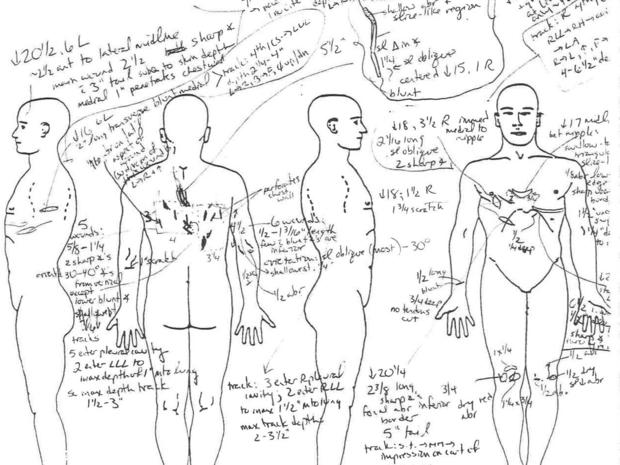
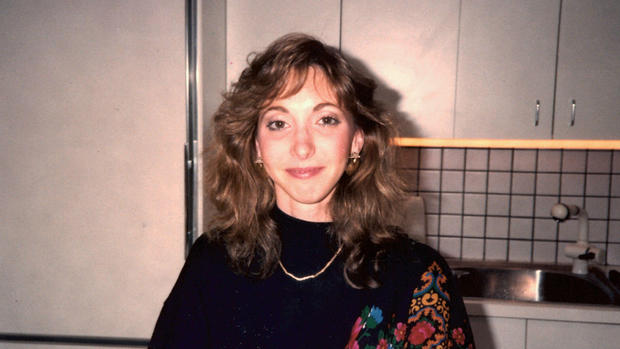
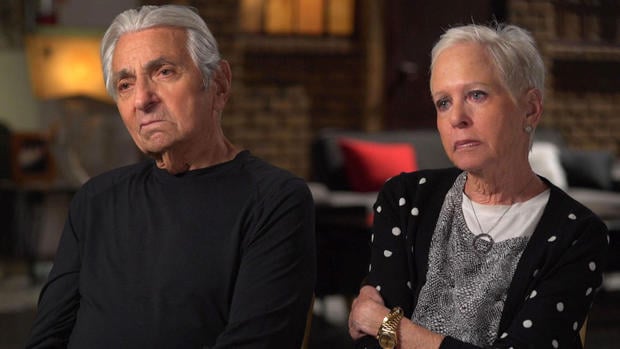
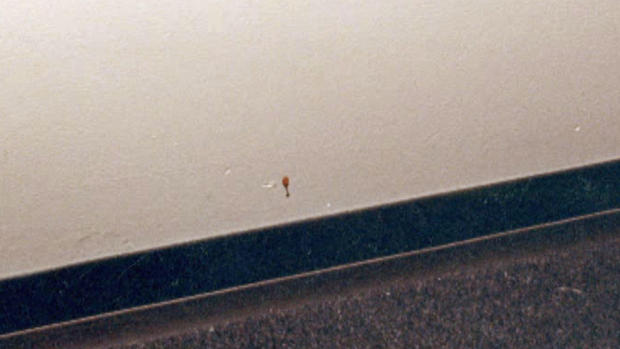
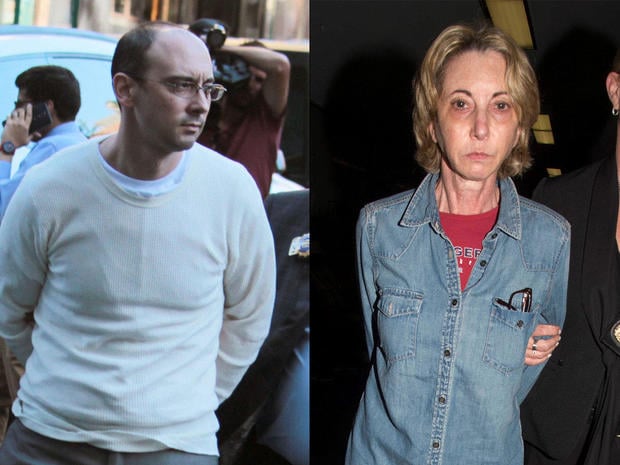
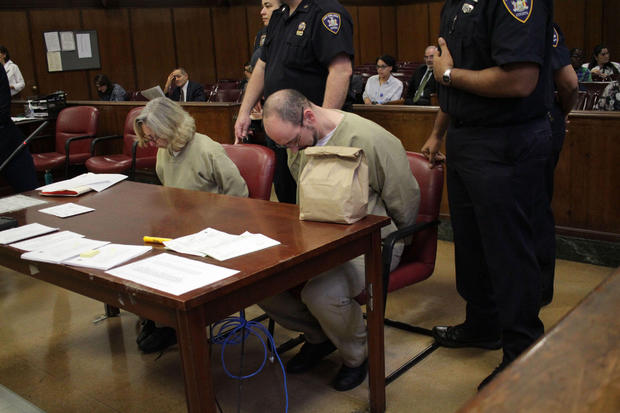
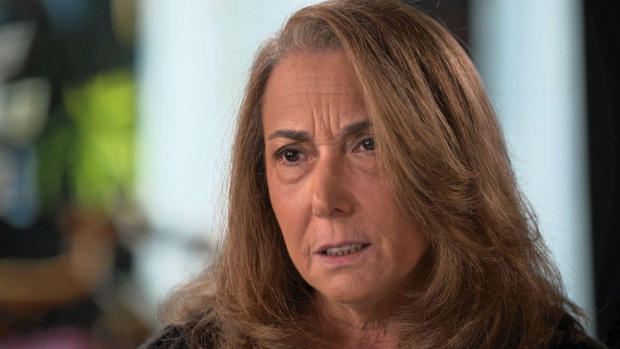
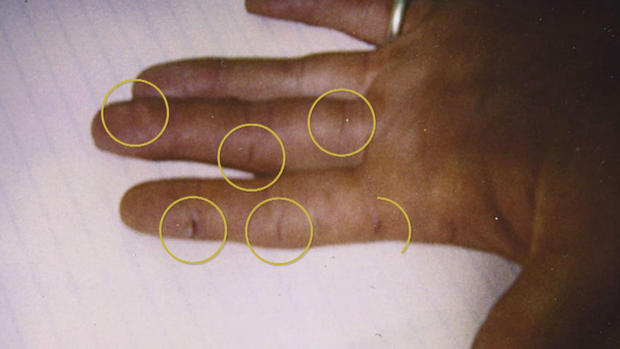
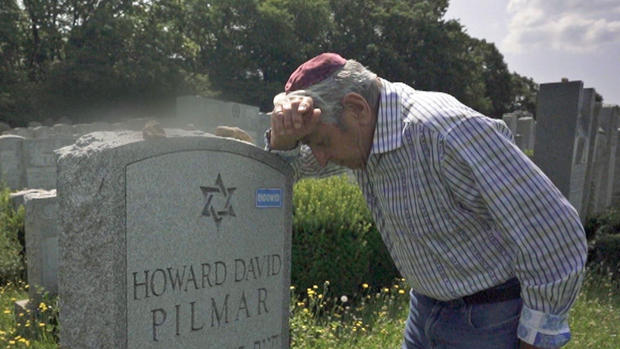

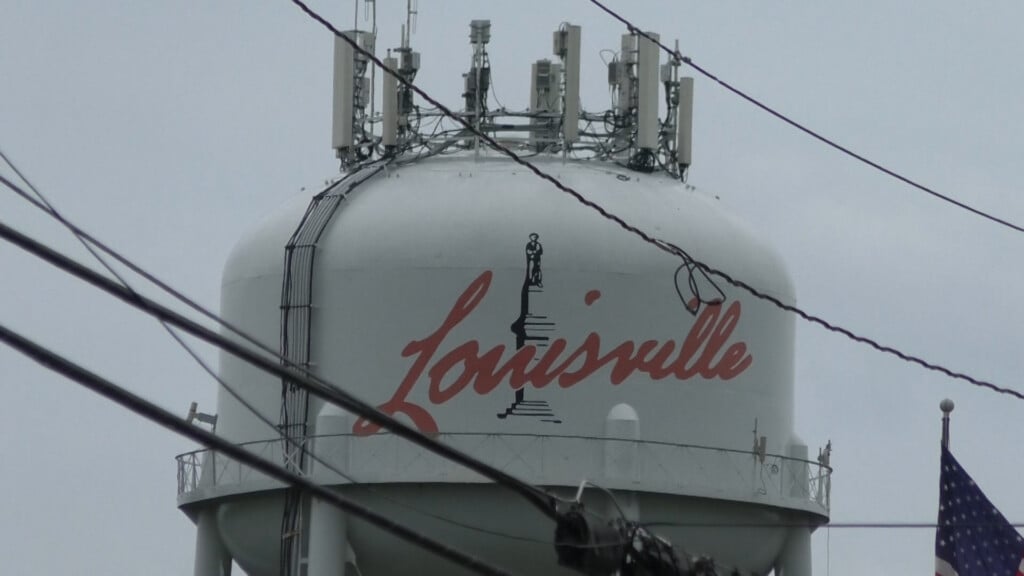
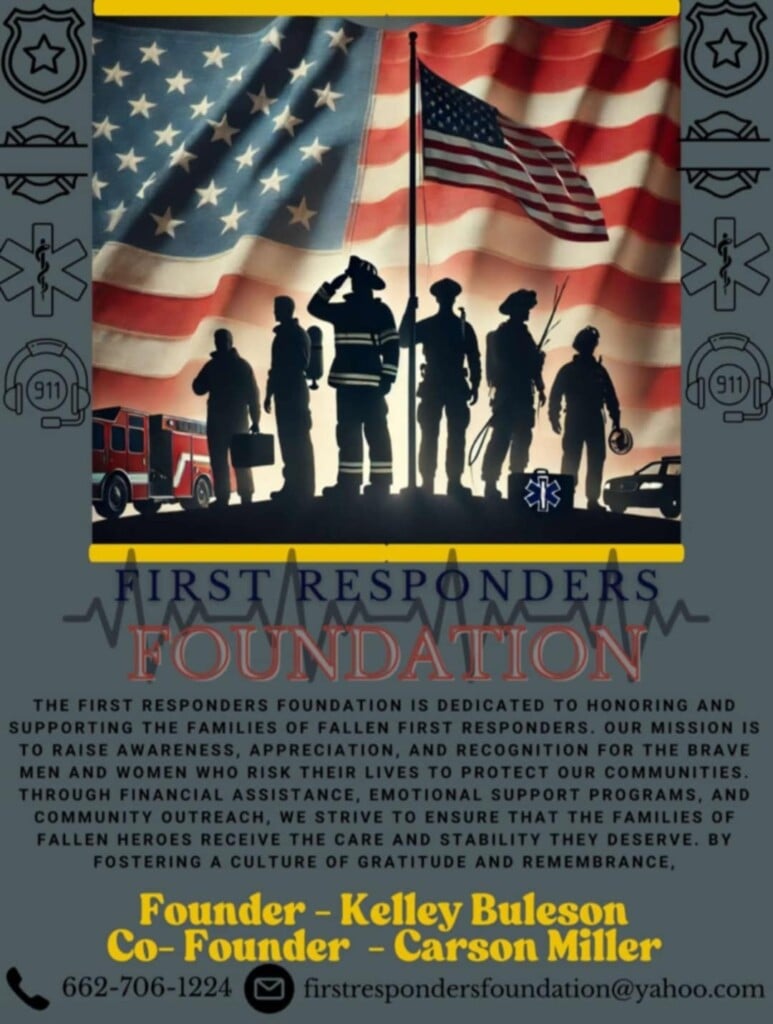
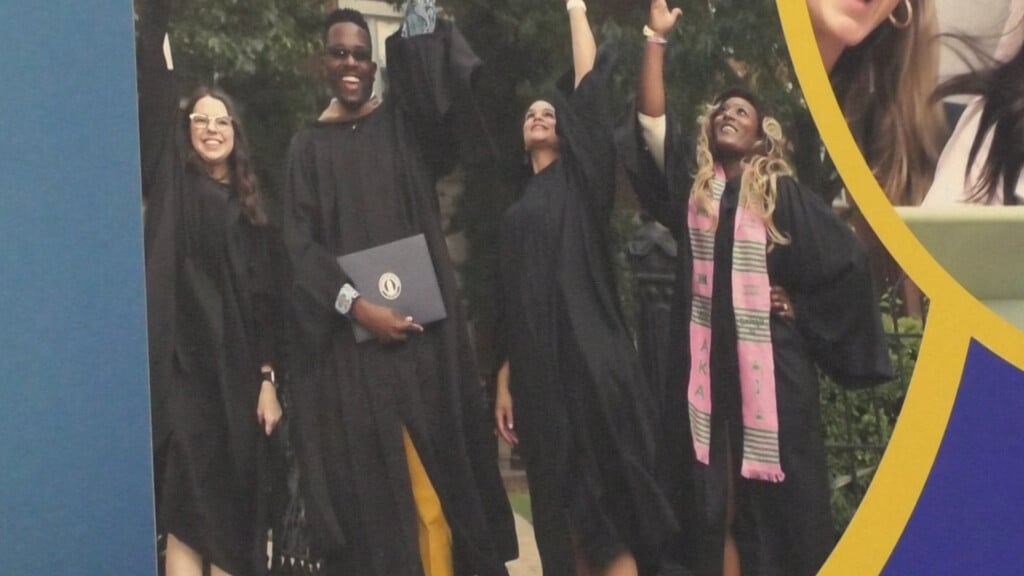

Leave a Reply